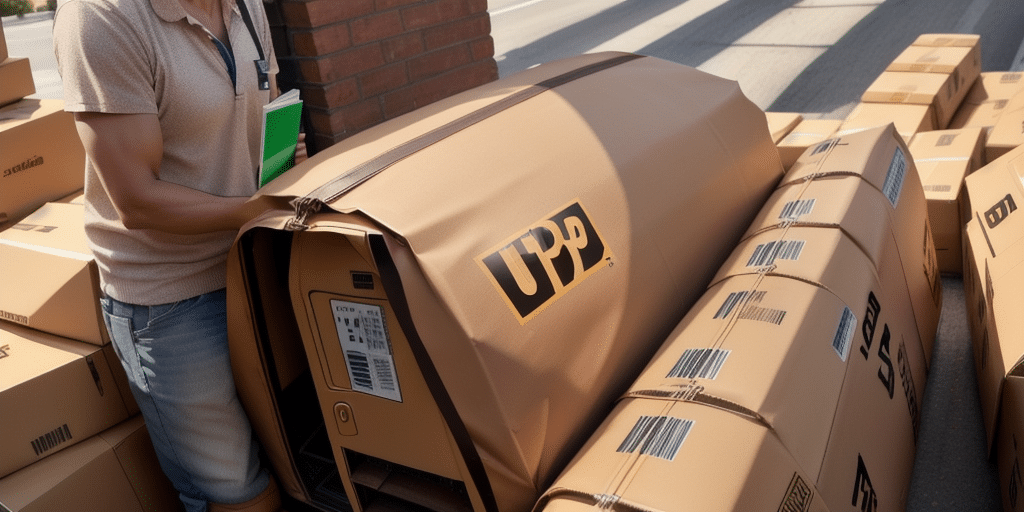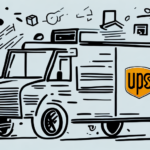Does UPS Offer Package Insurance?
When shipping packages, ensuring the security and safety of your shipment is paramount. Situations where packages are lost, stolen, or damaged in transit can be stressful and costly. This is where package insurance becomes invaluable, offering protection against various risks that your shipment may encounter. In this article, we delve into UPS package insurance, addressing key questions and providing insights to help you make informed shipping decisions.
What is UPS Package Insurance?
UPS package insurance is a service that offers financial protection for your shipments against loss or damage during transit. Available to both individuals and businesses, this insurance covers the declared value of your shipment, which you specify at the time of booking.
It's important to note that UPS package insurance is not included by default in the shipping costs. Shippers must opt-in and pay an additional fee based on the declared value and the desired level of coverage. This service provides peace of mind, knowing that valuable or fragile items are protected against unforeseen circumstances during the shipping process.
Understanding the Coverage Limits
UPS package insurance comes with specific coverage limits. The maximum declared value you can insure is typically up to \$50,000 per package, with UPS assuming liability up to \$100,000 per package. However, certain items such as cash, jewelry, and antiques are excluded from coverage. It's crucial to review UPS's terms and conditions to understand the full scope of what is and isn't covered.
Additionally, UPS insurance covers only the cost of the item being shipped, excluding shipping fees, taxes, or any additional costs. Proper packaging and labeling are essential to ensure eligibility for coverage. Improperly packaged or labeled items may not be covered under UPS's insurance policy.
Is UPS Insurance Worth the Cost?
Deciding whether UPS insurance is worth the additional cost depends on the value and nature of the items you are shipping. For high-value or fragile items, insurance provides essential protection, mitigating potential financial losses due to damage or loss. According to a Statista report, claims related to package damage and loss have significant financial implications, making insurance a prudent choice for valuable shipments.
However, for low-value items that can be easily replaced, the cost of insurance may outweigh the benefits. It's important to assess the value of your shipment and consider the potential risks before deciding to purchase additional insurance.
How to File a Claim for a Lost or Damaged Package
If your UPS shipment is lost, damaged, or stolen, you can file a claim to receive compensation. The process involves providing UPS with detailed information about the shipment, including the nature of the loss or damage and any supporting documentation such as delivery receipts or photos of the damaged package.
The UPS claims process typically involves the following steps:
- Notify UPS as soon as possible after noticing the damage or loss.
- Gather all necessary documentation, including proof of value and evidence of damage.
- Submit the claim online or through UPS customer service.
- UPS will investigate the claim and determine approval or denial.
Be aware of the time limits for filing claims and ensure all information is accurate and complete to avoid delays or denial.
Tips for Protecting Your Packages When Shipping with UPS
While UPS package insurance offers financial protection, taking proactive steps to safeguard your packages can minimize the risk of damage or loss:
- Choose Durable Packaging: Use strong, sturdy boxes that can withstand the rigors of transportation.
- Securely Pack Contents: Ensure all items are tightly packed and cushioned to prevent movement within the box.
- Proper Labeling: Clearly label packages with accurate addresses and handling instructions.
- Use Signature Confirmation: This service ensures your package is delivered directly to the intended recipient.
- Track Your Shipment: Monitor your package's progress to promptly address any issues that arise during transit.
Additionally, accurately declaring the value of your shipment ensures adequate coverage. Avoid shipping during peak seasons when the risk of mishandling and delays increases.
Common Reasons for Denied Insurance Claims
Understanding why insurance claims may be denied can help you avoid common pitfalls. Common reasons include:
- Incomplete Documentation: Missing or incorrect information can lead to claim denial.
- Poor Packaging: If the package was not properly packed, UPS may refuse the claim.
- Excluded Items: Shipping items that are not covered under UPS's insurance policy.
- Late Claims: Filing claims beyond the stipulated time frame can result in denial.
It's crucial to adhere to UPS's shipping guidelines and ensure all requirements are met to increase the likelihood of a successful claim.
Comparing UPS Insurance to Other Shipping Options
UPS is not the only carrier offering package insurance. Other carriers like FedEx and the United States Postal Service (USPS) also provide insurance services with varying coverage levels and costs.
When comparing insurance options, consider factors such as:
- Coverage Limits: Different carriers offer different maximum coverage amounts.
- Cost: Insurance fees vary based on the carrier and the declared value of the shipment.
- Claims Process: Assess the ease and efficiency of the claims process.
- Additional Services: Services like signature confirmation or tracking may enhance package security.
For instance, according to the USPS insurance options, they offer up to \$5,000 in insurance for Priority Mail Express and up to \$50,000 for certain package types, which may be comparable to or differ from UPS offerings depending on your needs.
Evaluating these aspects can help you choose the most suitable insurance option for your shipments.
Alternative Package Protection Options
Besides carrier-provided insurance, there are third-party insurance providers and credit card protections that can offer additional or alternative coverage for your shipments.
Third-party insurers often provide flexible coverage options and may cover items or situations that carrier insurance does not. For example, companies like InsureXperts specialize in shipping insurance and can offer competitive rates and comprehensive coverage.
Additionally, some credit cards offer purchase protection or shipping insurance as part of their benefits. Checking with your credit card issuer can reveal potential coverage options that complement or substitute carrier insurance.
Exploring these alternatives can provide more tailored protection based on your specific shipping needs.
Conclusion
Deciding whether to purchase UPS package insurance involves weighing the value and fragility of your items against the cost of insurance. For high-value or delicate shipments, insurance provides essential protection and peace of mind. However, for lower-value items, the additional cost may not be justified.
Regardless of your decision, implementing best practices in packaging, labeling, and tracking can significantly reduce the risk of damage or loss. Additionally, understanding UPS's insurance policies and comparing them with other carriers and third-party options ensures you choose the most appropriate protection for your shipments.
Ultimately, informed decision-making and proactive measures are key to secure and efficient shipping experiences.






















